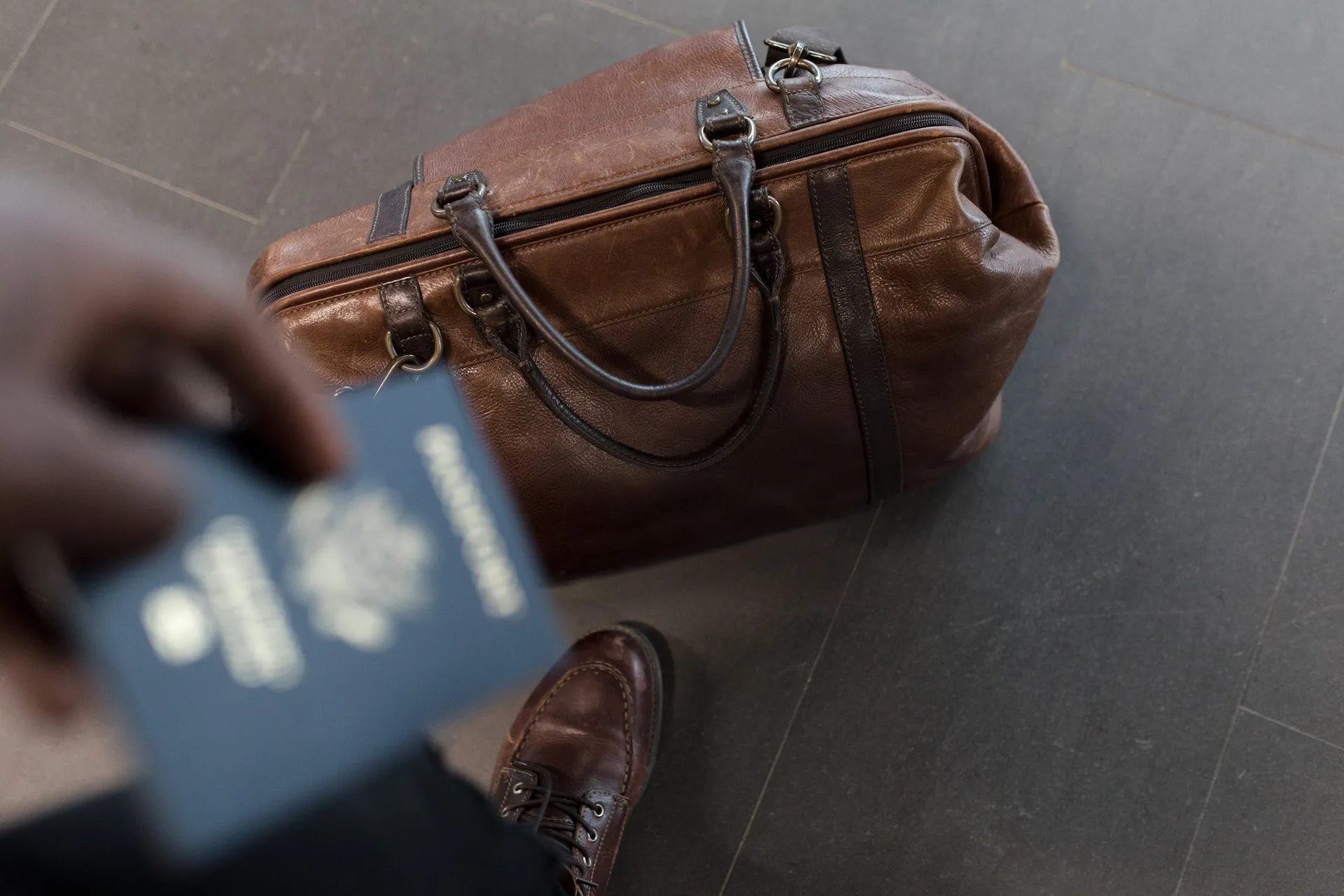Spouse/Civil Partner Visa Ireland
UK nationals do not need an Irish spouse visa for joining a spouse in Ireland. However, if the spouse is not a UK citizen, they may need a visa or residence permission.
Contact us today via +44 (0)333 414 9244 or +353 (0) 61 518 025 for immediate guidance on your Irish spouse visa, immigration, and citizenship processing. We are here to help you in person, via the phone, or online.
Read our 1001 reviews
Request a call back from our immigration experts
Benefits of Choosing IAS‘ Ireland Immigration Lawyers
When it comes to obtaining an Ireland visa or permit, IAS Ireland immigration lawyers are well-equipped to help you.
With IAS’ track record of successfully helping clients visit or immigrate to Ireland successfully, we can help you achieve your goal.
Our dedicated immigration lawyers provide our services through a comprehensive and personalised approach. With IAS, you enjoy:

Compassionate support from an experienced immigration lawyer dedicated to your success



Support in gathering supporting documents and completing a high-quality application.



Confidence that your case is being handled by an experienced team.



In-house document checks done by lawyers who are well-versed in Ireland immigration matters.
Services we Provide
What is Spouse/Civil Partner Visa for Ireland?
The spouse/civil partner visa is an immigration pathway open to spouses and civil partners of Irish nationals from non-EEA visa-required countries. The spouse/civil partner visas are usually long stay ‘D’ visas (join family) as you can live and work in Ireland without necessarily having an employment permit.
It must be noted that you don’t automatically have the immigration right to reside in Ireland simply because you are married to or in a civil partnership with an Irish national. To live in Ireland with your civil partner or spouse, you must apply for a spouse/civil partner visa.
UK nationals do not need a visa to live in or travel to Ireland, including for joining a spouse, due to the Common Travel Area (CTA) agreement between the UK and Ireland. UK citizens can live, work, and reside in Ireland without needing a visa or residence permit.
However, if the spouse is not a UK or Irish citizen, they may need a visa or residence permission depending on their nationality and the circumstances.
Ireland Spouse Visa Requirements
The requirement for Irish spouse visa depends on the circumstances of you and your partner. Nevertheless, there are still basic and general requirements that all applicants must meet; they include:
- You must be up to 18 years.
- The relationship between you and your partner must not be solely over the internet or telephone. You must have met your partner face-to-face a couple of times.
- You must provide a recognizable marriage or civil partnership certificate
- You and your civil partner or spouse must provide evidence that your relationship is genuine
- You both must commit to living together as civil partners or husband and wife permanently


Irish Spouse Visa Application Sponsorship
Your spouse/civil partner residing in Ireland will sponsor your application. However, to be eligible, they must fit in any of the following categories of Irish residents:
- Irish citizens who reside in Ireland or has the intention to reside in Ireland
- Foreign nationals and legal residents with an Irish Employment Permit
- Foreign nationals and legal residents with Stamp 4 permission. This also includes long term residents
- Foreign nationals and legal residents with Stamp 5 permission.
- D. students studying an accredited doctorate course in Ireland
- Ministers of religion with Stamp 3 permission
- Researchers under hosting agreement or with a Critical Skills Employment Permit
Note that your spouse or civil partner is eligible to sponsor your application doesn’t automatically translate to a successful application. Many other factors come into play.
Supporting Documents for your Irish Spouse Visa
You will be required to submit all of the following documents with your Irish Spouse visa application:
- Completed application form, signed and dated by you and your spouse
- Your original marriage/civil partnership certificate
- Yours and your spouse’s passports (including certified copies) and birth certificate
- Divorce papers from you or your spouse (if applicable)
- Bank Statements for the previous 12 months for both you and your spouse
- Proof of private medical insurance
- Evidence showing that your spouse has earned €40,000 in the previous 3 years, such as P60s, employment detail summaries, P21 revenue commissioner statements, financial statements or payslips
- Proof of joint accommodation such as rent books, joint tenancy/lease agreements, mortgage payments, or proof of home ownership
- Proof of shared address for you and your spouse, such as recent utility bills, letters from children’s schools, etc
Note that you must also include photocopies of all original documents.
Application Process for the Ireland Spouse Visa
After your marriage to an Irish citizen who’s residing in Ireland, you must apply for a long stay visa to remain in Ireland with them.
To do this, you must complete the Spouse/Civil Partner of an Irish National application form and post it along with your supporting documents to the following address:
Spouse of Irish National Section
Unit C – Domestic Residence and Permissions Division
Immigration Service Delivery
Department of Justice
13-14 Burgh Quay
Dublin 2, DO2 XK70
The immigration officer will consider your application if your sponsor has not majorly relied on benefits from the Irish State for the past 2 years before your application. Also, your sponsor must have earned above State benefits and a cumulative gross income of at least €40,000 in the past 3 years before your application.
Upon arriving in Ireland, you must be granted permission to remain in Ireland for more than 90 days. Even if you have a long stay D visa and pass border control, you can only reside in Ireland for more than 90 days if you register with immigration.
For this, you must visit the Garda National Immigration Bureau Registration office nearest to you with the following documents:
- Your original international passport
- Your original marriage/civil partnership certificate
- Proof of your joint address
- Your Irish civil partner’s or spouse’s original international passport
Cost and processing time for Ireland Spouse visa
There is no official cost associated with the Irish Spouse visa. This is due to an exemption that certain family members of Irish citizens have when joining their family member in Ireland, including spouses or civil partners.
However, you may still have to pay certain additional fees in your application, such as if you need to have documents translated or if you had to pay for a C or D visa to enter Ireland.
It may take around 12 months or more for the ISD to process your application, particularly if you have submitted your application during a busy time.
Up-to-date processing times for visa types can be found on the ISD and Irish embassy websites.
Joining Your Non-EEA Spouse/Civil Partner In Ireland
If both you and your spouse/civil partner are non-EEA nationals, their immigration status mainly influences your Join Family Visa application in Ireland. For sponsorship, your spouse/civil partner must fall into any of the following categories:
- Critical Skills Employment Permit holders
- Investors/Entrepreneurs
- Business Permission holders
- Researchers
- INIS Approved Scholarship programme students
- Intra Corporate Transferees
- D. Students under certain conditions
- Full-time non-locum doctors
If your spouse/civil partner doesn’t fall into any of these categories but has been in Ireland for more than 12 months, they can sponsor your family reunification application. That’s if they fall into any of the following categories:
- Non-Critical Skills Employment Permit holders
- Stamp 4 holders not under more favourable arrangements
- Ministers of Religion
If your spouse or civil partner who is a non-EEA national in Ireland doesn’t fall into any of the two sets of categories listed above, they can’t sponsor your visa application.
Also, one of the major deciding factors is your spouse/partner’s income. For your non-EEA spouse/civil partner to sponsor you, they must have sufficient income earnings to support you during your stay in Ireland.
Joining Your EU/EEA/Swiss Spouse/Civil Partner In Ireland
If your spouse/civil partner in Ireland is an EU/EEA/Swiss national, you’ll apply for a ‘Residence Card of a Family Member of a Union Citizen’.
More specifically, you’ll apply for a ‘Residence card for a qualifying family member of a Union citizen as there are two types of residence cards.
This requires your spouse to sponsor you using their EU Treaty Rights.
Application for the residence card can take about 12 months to process as you have to submit several supporting documentation and forms.
You’ll receive a letter after submitting all supporting documents and application forms.
Depending on your circumstances, the letter may permit you to reside in Ireland until a verdict on your application.
If your application is approved, you have to register for permission to stay in Ireland for more than 90 days.


Why has my Irish spouse visa application been rejected?
Due to the level of evidence and supporting documents, you must provide to prove your relationship is genuine, the Irish spouse visa application process can be complex to handle. Hence, there are different reasons why your application can be rejected.
Your application may be rejected if:
- You or your partner has previous relevant immigration history of criminal records
- You or your partner is considered a threat to public health, public security, or public policy
- You provided insufficient information and evidence to prove the existence, closeness, and durability of your relationship.
- The civil partner or marriage is suspected to be for the sole purpose of you getting residency in Ireland.
- Your partner doesn’t have the finances to support you in Ireland
Table of Contents
Table of Contents will appear here.Legal Disclaimer
The information provided is for general informational purposes only and does not constitute legal advice. While we make every effort to ensure accuracy, the law may change, and the information may not reflect the most current legal developments. No warranty is given regarding the accuracy or completeness of the information, and we do not accept liability in such cases. We recommend consulting with a qualified lawyer at Immigration Advice Service before making any decisions based on the content provided.
Frequently Asked Questions
After registering with and getting residency permission from the immigration authorities in Ireland, you’ll receive an immigration stamp in your passport. The stamp indicates what you can and cannot do in Ireland.
If your spouse/civil partner is an Irish citizen, you will receive Stamp 4. Stamp 4 permits you to stay in Ireland for an initial period of 36 months. You can work without an employment permit.
When applying for citizenship by naturalization, Stamp 4 is reckonable as a residence, so the time you spend in Ireland under Stamp 4, will add towards the required residency duration for Irish citizenship.
If your spouse/civil partner is a non-EEA national, you’ll have to meet employment permit requirements to work according to the Department of Jobs, Enterprise, and Innovation.
You need to renew your immigration permission before it expires if you intend to continue staying in Ireland. You can easily extend your stay if you abide by the rules of your permission and are of good conduct.
A civil partnership is a legal relationship entered into by a couple that is registered and grants them similar legal rights to married couples.
Civil partnerships are different from marriages as they’ve not formed by vows; instead, they’re formed by signing the civil partnership document.
In addition, divorce ends marriages while civil partnerships are dissolved even if the processes are about the same.
You must inform the Garda National Immigration Bureau Registration office where you applied if you separate with your spouse/civil partner. You must notify them within 7 days of the separation.
In addition, you’ll write to the Spouse of the Irish National Unit detailing the circumstances surrounding your separation. You just write to them at least 3 months before your immigration permission expires.
You can maintain your immigration permission after separation if you’ve been in the marriage or civil partnership for at least 3 years and resident in Ireland for the last 2 years before separation. Otherwise, you may have to leave the country.
For your spouse/civil partner, they’ll be unable to sponsor any other spouse or civil partner for 7 years after the date of your spousal permission.
If you wish to sponsor your spouse or civil partner, you need to have earned €40,000 in the last 3 years in order to be eligible.
After registering with and getting residency permission from the immigration authorities in Ireland, you’ll receive an immigration stamp in your passport. The stamp indicates what you can and cannot do in Ireland.
If your spouse/civil partner is an Irish citizen, you will receive Stamp 4. Stamp 4 permits you to stay in Ireland for an initial period of 36 months. You can work without an employment permit.
When applying for citizenship by naturalization, Stamp 4 is reckonable as a residence, so the time you spend in Ireland under Stamp 4, will add towards the required residency duration for Irish citizenship.
If your spouse/civil partner is a non-EEA national, you’ll have to meet employment permit requirements to work according to the Department of Jobs, Enterprise, and Innovation.
You need to renew your immigration permission before it expires if you intend to continue staying in Ireland. You can easily extend your stay if you abide by the rules of your permission and are of good conduct.
A civil partnership is a legal relationship entered into by a couple that is registered and grants them similar legal rights to married couples.
Civil partnerships are different from marriages as they’ve not formed by vows; instead, they’re formed by signing the civil partnership document.
In addition, divorce ends marriages while civil partnerships are dissolved even if the processes are about the same.
You must inform the Garda National Immigration Bureau Registration office where you applied if you separate with your spouse/civil partner. You must notify them within 7 days of the separation.
In addition, you’ll write to the Spouse of the Irish National Unit detailing the circumstances surrounding your separation. You just write to them at least 3 months before your immigration permission expires.
You can maintain your immigration permission after separation if you’ve been in the marriage or civil partnership for at least 3 years and resident in Ireland for the last 2 years before separation. Otherwise, you may have to leave the country.
For your spouse/civil partner, they’ll be unable to sponsor any other spouse or civil partner for 7 years after the date of your spousal permission.
If you wish to sponsor your spouse or civil partner, you need to have earned €40,000 in the last 3 years in order to be eligible.
It can take up to 12 months or more to obtain a Spouse visa for Ireland. You will be able to track up-to-date visa processing times on the ISD website.


What our clients are saying
How our UK Immigration Lawyers can help
At the Immigration Advice Service our lawyers specialise in a wide range of UK visas, nationality and asylum applications and have represented clients in various successful complex and high-profile cases.















